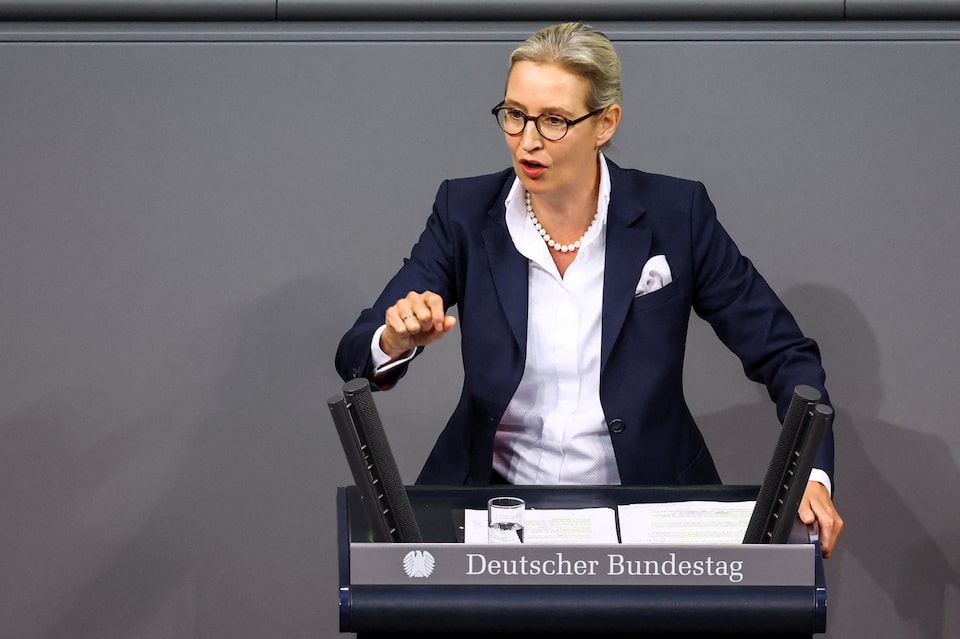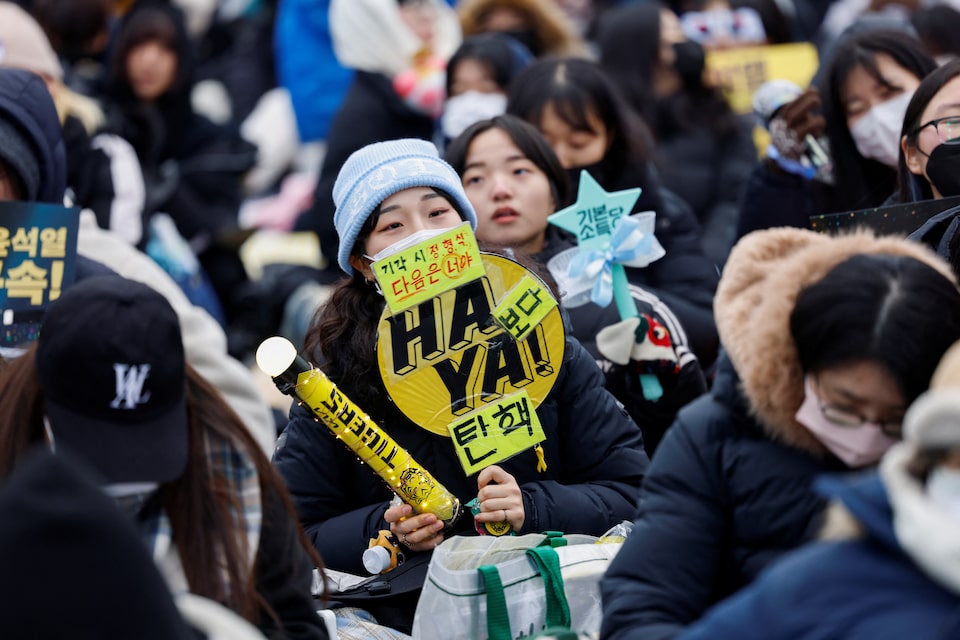Germany’s Alternative for Germany (AfD) party co-leader Alice Weidel addresses the lower house of parliament, the Bundestag, in Berlin, Germany November 13, 2024. REUTERS
Summary
- Far-right AfD nominates chancellor candidate for first time
- Alice Weidel seen leading party into Feb. 23 election
- AfD has surged in recent years to second place in polls
- Not seen entering coalition yet as other parties shun it
BERLIN, Dec 7 (Reuters) – Germany’s Alternative for Germany (AfD) will nominate on Saturday its first chancellor candidate in its 11-year history ahead of a snap election set for February as the far-right party increasingly sets its sights on power.
The party, which ranks second in opinion polls behind the main opposition conservatives but well ahead of Chancellor Olaf Scholz’s Social Democrats, is expected to nominate co-leader Alice Weidel as chancellor candidate.
Authorities suspect the AFD of pursuing anti-democratic goals. Given that other parties have ruled out working with it, it is not likely to form part of a governing coalition anytime soon.
But the AfD’s electoral successes are increasing pressure on the conservatives to drop their firewall with the party and consider a right-wing coalition, especially given the weakness of their erstwhile traditional partner, the neoliberal Free Democrats (FDP).
In recent years, far-right parties have gained traction across Europe, and they have also come to power in Italy, Sweden, the Netherlands, and Finland.
“There is a claim to power to assert and the best way to do that is to nominate a chancellor candidate,” said Hans Vorlaender, political scientist at Dresden’s Technical University.
“It also gives you the opportunity to be present in the media because there are always debates held between the so-called chancellor candidates.”
Long dismissed as a protest party, the AfD is also seeking to establish itself more as a “normal party”, said Stefan Marschall, political scientist at the University of Duesseldorf.
UNLIKELY CANDIDATE
Weidel, 45, who has co-led the party since 2022, is an unlikely public face for a male-dominated, anti-immigration party that depicts itself as a defender of traditional family values and ordinary German working people.
She is raising two sons with a Sri Lankan-born woman, a filmmaker, and speaks fluent Mandarin, having done her PhD in economics in China. She worked for Goldman Sachs and Allianz Global Investors and as a freelance business consultant before entering politics.
Weidel’s unusual profile, however, is precisely what makes her an asset to the AfD, according to political analysts who say she is more likely to appeal to more moderate Germans who would normally shun a far-right party.
In recent years the AfD has tapped into voter worries about high levels of immigration, a possible escalation of the Ukraine war and the crisis of Germany’s economic model as well as frustration with infighting within the ruling coalition, which fell apart last month.
The party wants to sharply curb immigration, particularly from Muslim countries, end arms deliveries to Ukraine, rebuild relations with Russia, turn the nuclear power plants back on and exit the European Union unless it carries out major reforms.
It has earned credibility with some voters for openly addressing hot-button topics before mainstream parties did.
The party came first in two state elections in September, despite mass anti-AfD protests and a string of scandals which included a senior figure declaring that the SS, the Nazis’ main paramilitary force, were “not all criminals”.
A survey by pollster Wahlen published on Friday put the AfD on 17%, behind the conservatives on 33%, but ahead of the SPD on 15% and the Greens on 14%. The conservatives, the SPD and Greens all have chancellor candidates.
Membership of the AfD has swelled by 50% to around 50,600 over the past year, the party’s spokesman said, though it is a fraction (some 14%) of the membership of Germany’s big tent parties, the CDU/CSU conservative bloc and the SPD.
Reporting by Sarah Marsh Editing by Gareth Jones





